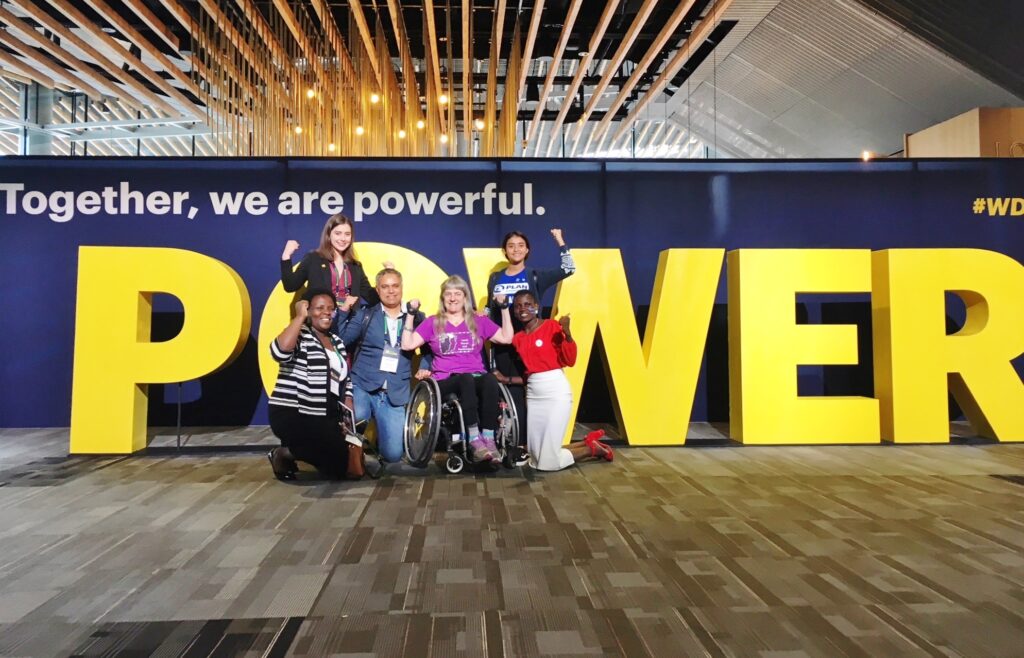It has been about six years since I returned home from my last international exchange. I spent the academic year of 2010-2011 studying Spanish literature and Latin American history at the Pontifical Catholic University in Santiago Chile. Since then I have been wondering just what it was about my exchange that gave my employment prospects such a boost. We recently launched the Clearinghouse’s #LifeAfterExchange campaign looking at the long-term benefits of international exchange, so this seemed like a good time for further exploration.
For me, international exchange was one of the best choices that I made when I was in college. It wasn’t because I got to visit a new part of the world, or meet new people, or taste great food. I could’ve done that in Berkeley. Rather, it was because going to Latin America cut me off from the shelter of the University. I didn’t have access to a disabled student services office to transcribe my books. I didn’t get help from the Department of Rehabilitation to pay for my human readers. I left behind all notion that I had a right to anything, feeling that I had arrived to a place where I had no rights. All I had was my own grit and creative thinking to fall back on.
This might seem counterintuitive. Wasn’t it bad that I did not get support from my disability resource center? Shouldn’t my study abroad office have been more active in engaging me on what I needed? Why would I want to be without my rights?
At MIUSA we advocate for these things, because we think that the playing field should be leveled between disabled and nondisabled exchange participants. If a sighted person does not have to take any extra steps to get their books besides going to the store and swiping their card, I shouldn’t either. Disability rights are important in the way that they give us a claim over the extra support that levels the playing field.
However, sometimes being forced to take challenge by choice and come up with your own solutions for accessibility barriers can be a benefit, even if it is not morally the way things ought to be.
A study completed by the Council on International Educational Exchange (CIEE) found that employers only value study abroad in so much as they associate it with the fostering of skills and personal qualities such as adapting to change, functioning under pressure and working outside one’s comfort zone.
It is hard to say whether or not I would have developed any of these qualities quite as well as I did if I had not needed to solve my own problems. But it definitely helped.
Going to Latin America put me in a do or die situation, where I would either act fast and figure out how I was going to get what I needed as a blind person, or fail. Nobody was accountable for me to succeed except me. If I failed, it would not reflect badly on anybody-no disabled student service office, no University-just me.
That does not mean that I never wondered how I would succeed when I didn’t have all of the resources that I had grown up with, teachers, braille transcribers, mom and dad. People always told me that I had the right to employment, and education. Everyone had the right to a job and education. Everyone including the 70% of blind people like me who were unemployed. Having the right to a job didn’t really change things for them in that regard.
Merely having rights didn’t confirm to me that I would have success. The one thing that I knew for sure was that all of these resources that I had in the moment would not be there when I set out into the wide world of work. And I did not have an answer to the question of what I was going to do.
International exchange helped me to answer that question. I finally had the chance to see how I could succeed without rights, without transcribers, without mom and dad and without a college looking out for me.
What if I had had support from the Pontifical Catholic University’s disabled student office? What if there was flawless collaboration between study abroad and the disabled student’s program? Would it be the same? Not for me.
Going to Latin America was the first time I could confront the cold hard reality that, I’m not entitled to success.
It was the first time that I tested my metal, jumped into the abyss and landed on my feet.






Manage Your Privacy